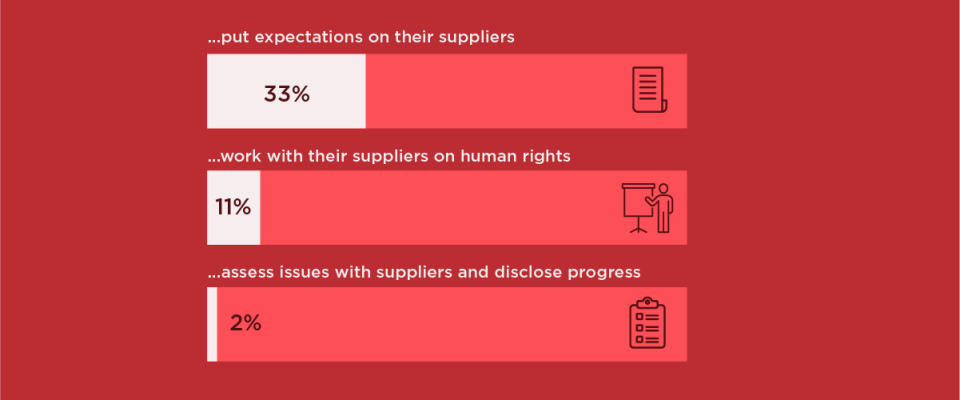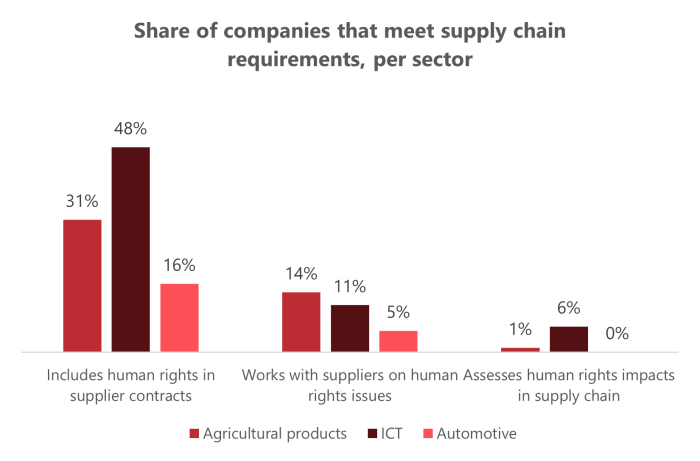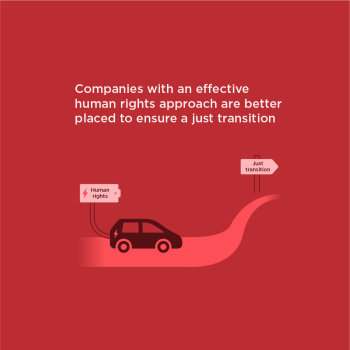Key finding
Companies are taking a hands-off approach to human rights in their supply chains

Companies have a responsibility to respect human rights, not only within their four walls but also across their supply chains. Here, effective human rights due diligence processes and requirements for business relationships are key. However, given the complex and opaque nature of global supply chains, expecting a ‘trickle-down’ effect to ensure the management of human rights impacts is unrealistic and overly optimistic.
In recognition of this, the Corporate Human Rights Benchmark’s updated methodology examines the expectations companies place on their suppliers through codes of conduct and contractual agreements, but also how companies work with suppliers to identify key sectoral adverse risks and impacts as well as monitor and disclose progress.
Our findings show that while many businesses do place expectations on their suppliers, the vast majority still fail to follow through by supporting them and monitoring progress.
When it comes to key human rights risks for the three sectors assessed, such as child and forced labour, land rights, women’s rights and living wages, on average 33% of companies include such issues in supplier codes of conduct and contractual agreements. However, only 11% work with suppliers on the topics, and an even smaller number (2%) assess how many people are affected by these issues in the supply chain and disclose progress. This varies by sector.

For example, on the issue of forced labour, the assessment shows that while 63% of the food and agriculture companies include a supplier requirement that prohibits restrictions to workers’ freedom of movement, only 9% work with their suppliers to address the issue, and only 2% report progress on it (D.1.5f). Similarly, while almost all ICT companies include the issue of recruitment fees (93%), only 33% support or work with their suppliers, and 9% monitor and report progress on the issue (D.4.5b).
This largely hands-off approach to human rights risks and impacts is particularly concerning since we found that more than half of allegations of serious negative human rights impacts this year occurred in companies’ supply chains. This finding suggests that companies’ inaction regarding human rights risks in their supply chains could, over time, result in companies being involved in human rights abuses (by contributing or being linked to negative impacts). Our benchmark encourages companies to take a preventive approach and work with their suppliers to track and mitigate human rights risks before they become adverse impacts.
